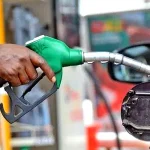Ghana’s Liquefied Petroleum Gas (LPG) consumption rebounded by 4% in 2023 despite the significant economic challenges of the previous year.
According to the Ghana Chamber of Bulk Oil Distributors’ 2023 Industry Report, LPG consumption increased from 305,076 metric tons in 2022 to 317,465 metric tons in 2023.
This recovery is largely attributed to a resurgence in economic activity following a slowdown in 2022, driven by the rapid depreciation of the cedi.
The depreciation, coupled with an 86% surge in LPG pump prices, had forced many households and businesses to shift to alternative energy sources, leading to a sharp drop in demand.
The report highlights the strong correlation between LPG prices and consumption trends. It states, “LPG consumption declined significantly in 2022 due to the cedi depreciation. A cursory analysis of monthly consumption versus average monthly prices reveals an inverse relationship between LPG prices and demand.”
The report noted that the challenges faced in 2022 could hinder the government’s ambition to achieve a 50% national LPG penetration by 2030.
Despite these setbacks, LPG remains the primary cooking fuel for approximately 40% of Ghana’s population. Its convenience, efficiency, and cleanliness continue to make it a preferred choice for many households.
In rural areas, LPG usage showed a slight increase, rising from 14.8% in 2022 to 16.5% in 2023, reflecting growing adoption as a cleaner and more efficient energy source.
Similarly, urban LPG usage grew from 51.3% to 56.1%, highlighting improved access and adoption in densely populated areas.
This upward trend is expected to persist as both the government and private sector invest in expanding LPG infrastructure and promoting its use.
The modest growth in LPG consumption is a promising sign for Ghana’s energy sector, which has faced significant hurdles in recent years.
As Ghana navigates the complexities of the global energy market, it is evident that LPG will play an increasingly vital role in meeting the country’s energy needs.
















